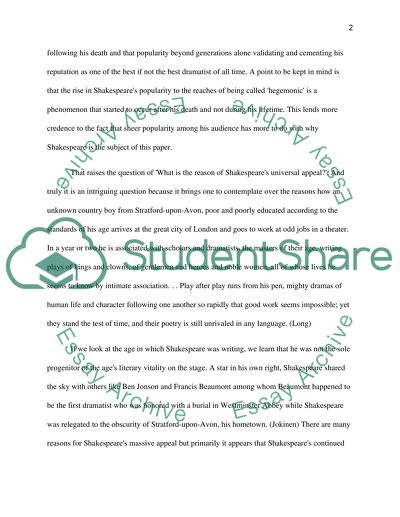Cite this document
(“Challenging Shakespeare's Hegemonic Position in the Literary Canon Essay”, n.d.)
Retrieved from https://studentshare.org/english/1447985-write-an-essay-either-endorsing-or-challenging
Retrieved from https://studentshare.org/english/1447985-write-an-essay-either-endorsing-or-challenging
(Challenging Shakespeare'S Hegemonic Position in the Literary Canon Essay)
https://studentshare.org/english/1447985-write-an-essay-either-endorsing-or-challenging.
https://studentshare.org/english/1447985-write-an-essay-either-endorsing-or-challenging.
“Challenging Shakespeare'S Hegemonic Position in the Literary Canon Essay”, n.d. https://studentshare.org/english/1447985-write-an-essay-either-endorsing-or-challenging.


